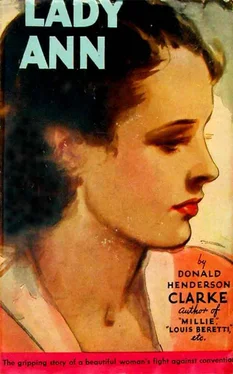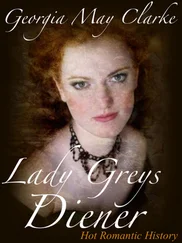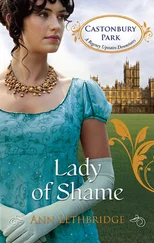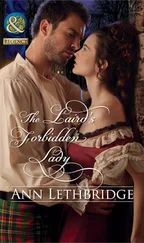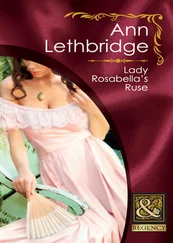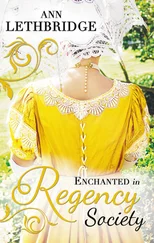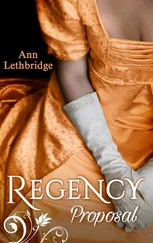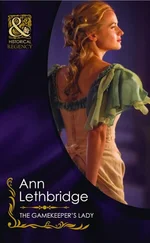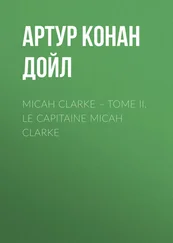Donald Henderson Clarke - Lady Ann
Здесь есть возможность читать онлайн «Donald Henderson Clarke - Lady Ann» — ознакомительный отрывок электронной книги совершенно бесплатно, а после прочтения отрывка купить полную версию. В некоторых случаях можно слушать аудио, скачать через торрент в формате fb2 и присутствует краткое содержание. Жанр: unrecognised, на английском языке. Описание произведения, (предисловие) а так же отзывы посетителей доступны на портале библиотеки ЛибКат.
- Название:Lady Ann
- Автор:
- Жанр:
- Год:неизвестен
- ISBN:нет данных
- Рейтинг книги:5 / 5. Голосов: 1
-
Избранное:Добавить в избранное
- Отзывы:
-
Ваша оценка:
- 100
- 1
- 2
- 3
- 4
- 5
Lady Ann: краткое содержание, описание и аннотация
Предлагаем к чтению аннотацию, описание, краткое содержание или предисловие (зависит от того, что написал сам автор книги «Lady Ann»). Если вы не нашли необходимую информацию о книге — напишите в комментариях, мы постараемся отыскать её.
Lady Ann — читать онлайн ознакомительный отрывок
Ниже представлен текст книги, разбитый по страницам. Система сохранения места последней прочитанной страницы, позволяет с удобством читать онлайн бесплатно книгу «Lady Ann», без необходимости каждый раз заново искать на чём Вы остановились. Поставьте закладку, и сможете в любой момент перейти на страницу, на которой закончили чтение.
Интервал:
Закладка:
“Oh, Rebecca. I’m going to e-v-i-r-d to m-a-h-t-s-a-E. Would you like to o-g?”
Clarence explained this system of spelling backward as follows. He said to Ann:
“We used to spell words straight ahead. But one day after we spelled out Eastham from front to back, with Tack listening with his eyes on me, his head cocked to one side and his tongue hanging out, we got to Eastham, and found Tack there waiting for us. He knows more’n most folks, Tack does.”
Ann went to live with Clarence and Rebecca, temporarily, immediately after her father died and was buried in a plain pine coffin, as had been his wife. Both families considered that spending unnecessary money on funerals was a sinful waste. Both the Smiths and the Steeles took deaths as calmly as they took meals, and with no more sartorial preparation. They wore their everyday clothes to the funeral, not worrying about the color, and it was a source of pride in both families that ministers weren’t allowed to utter eulogies on the departed. Gramma Smith said:
“If the one that died was worthless in life he didn’t become valuable by dyin’. If the one that died lived a useful life nothin’ any minister could say would make it any more useful. And there’s nothing more terrible and embarrassing than to sit at a funeral and hear a minister spend an hour praising a man that we all know was mean to his neighbors, poison to his family, and a blot on the landscape.”
After Elihu was buried, it was learned that there was five hundred and sixty dollars in the Eastham National Bank, and twelve hundred dollars in the Eastham Institution for Savings, and a mortgage of $2,500 on the Elm Street place, which was valued at $7,500. This all was left to Ann.
Aunt Emma Mabie lived in the town of Bennington. Aunt Emma was a widow, rather careful about money. She had a pension because her late husband had been a veteran of the Civil War, and she did dressmaking. Ann didn’t especially care to live with her.
Aunt Lydia Graves, in Old Orchard, younger of the two Smith sisters, closely resembled Ann’s mother, except that she might have been adjudged even more comely had it not been for the fretful expression of her face and the slightly nagging quality in her voice.
Aunt Lydia and her short, stocky, rather silent, druggist husband, Richard, lived in a big yellow house with their three children, Richard, Jr., twenty, who was going to Amherst; Davis, sixteen, who was planning to go to Yale, and Marion, twelve, still in High School. Aunt Lydia was famous as a housekeeper. Her home was immaculate. She didn’t allow her husband or her sons to smoke in it, because the tobacco fumes stayed in the curtains and drapes and the ashes messed up the floors. In fact, she insisted on the males using the back door most of the time, and for several years while the boys were young made them remove their shoes before they entered the house.
“You wouldn’t like that, would you?” Dr. Benham asked, when he and Ann discussed the situation.
Ann’s only blood uncle, her mother’s brother, A. Howard Smith, lived in Westchester County and commuted to New York, where he had become more than merely well-to-do in the real estate business. The A. Howard Smiths, A. Howard and his wife, Elizabeth Newton Donellan Smith, had eight children, who all spoke with English accents, posted when they rode horseback, played golf, tennis and whist. Howard’s first initial concealed the name Adonijah. Dr. Benham said of this branch of the family:
“As I see it, Annie, you wouldn’t want to be an extra wheel on the cart anywhere. You’d have to be living on your uncle. He’s rich and can afford it, but maybe you can’t. Clarence and Rebecca have known you ever since you were hardly as big as a good-sized peanut. They haven’t any children of their own, and they love you. They want you. You can pay your way in affection and a little work around with them. Anyhow, it won’t do any harm to try, if you feel like it. What do you think?”
“I’d rather live with Uncle Clarence and Aunt Rebecca than anybody,” Ann said.
Clarence looked up from his rose bushes and saw Dr. Benham in his buggy, heading toward Southfield Centre. Clarence straightened up and called:
“Hey, Doc.”
Dr. Benham said:
“Whoa, Sam.”
Sam stopped, craned his neck and looked at the doctor, and then settled himself comfortably with his off-front leg bent at the knee.
The doctor wrapped the reins around his never-used whip, put his right foot, encased in a Congress Boot with elastic sides, on the right front wheel of the buggy, and removed a half-burned Connecticut cigar from the tobacco-stained area of white mustache and Vandyke, and spat into the dust. He said:
“Nice day, Clarence.”
Clarence, in collarless shirt, unpressed trousers supported by red and blue galluses, closed the gate of the white picket fence behind him and reached up a big brown hand, which the doctor shook warmly.
“A weather-breeder, though,” Clarence said. “Ain’t a cloud in the sky.”
The doctor nodded and said:
“Wouldn’t be surprised if we had a lot of rain inside of twenty-four hours.”
Sam moved his front feet forward and his hind feet backward, and released a stream of water, which spattered when it hit the dust. Clarence moved quickly away. Dr. Benham grinned.
“Catch ye, Clarence?” he asked. “Sam’s kidneys don’t seem to hold quite so well now as they did when he was younger.”
Clarence lighted one of the doctor’s cigars with a sulphur match. He took two short puffs and one long one, and spat. He said:
“I wanted to talk to you about Annie, Doc.”
“I just passed her back by Si Brockaway’s,” the doctor said. “She didn’t look very sick to me.”
Clarence grinned and knocked ashes from his cigar. Then his face became solemn and his voice lowered. He said:
“I walks into the kitchen last Saturday night and there’s Annie takin’ a bath in the washtub. You could’ve knocked me over with a feather, Doc. She ain’t a little girl any more. She’s a woman. She’s got the prettiest breasts you ever seen—plump as a partridge.”
Dr. Benham nodded. Sam took a step forward. Clarence’s foot slipped from the rear wheel hub on which he had been resting it. The doctor shouted:
“Whoa, Sam.”
Sam looked around, with an expression as near a grin as any horse might achieve. Clarence drew a big jackknife from his pocket, opened the big blade, and began delicately to test its point on the hard rubber tires of the buggy. The doctor crossed his legs, right leg over left, holding his right shin, partly covered by a garterless white sock, with both hands.
“Annie’s been menstruating for two months, Clarence,” he said.
“Well, I swan!” Clarence exclaimed.
The doctor lighted a fresh cigar on the butt of the one he had been smoking, tossing the butt into the road.
“She’s a beautiful little thing,” the doctor said.
Clarence puffed hard on his cigar, held it up and looked closely at it, and threw it away. The doctor produced a fresh one and offered it to Clarence. Clarence waved it away. He said:
“No thankee, Doc. I guess I’ll have a chew.”
He dug a plug of black tobacco from his trousers, cut off a chunk with his knife, and popped it into his mouth. He put his right hand on the seat rail and rocked the buggy gently, spat, and said:
“I was never one that put much stock in the theory that artists and doctors only regarded the female of the species as one of them bug chasers looks at a butterfly in a glass case. You know, only in a scientific spirit, so to speak.”
Dr. Benham blew smoke from his stogy and grinned.
“You aren’t so far wrong, Clarence,” he agreed. “Artists and doctors are males first, and artists and doctors second.”
Читать дальшеИнтервал:
Закладка:
Похожие книги на «Lady Ann»
Представляем Вашему вниманию похожие книги на «Lady Ann» списком для выбора. Мы отобрали схожую по названию и смыслу литературу в надежде предоставить читателям больше вариантов отыскать новые, интересные, ещё непрочитанные произведения.
Обсуждение, отзывы о книге «Lady Ann» и просто собственные мнения читателей. Оставьте ваши комментарии, напишите, что Вы думаете о произведении, его смысле или главных героях. Укажите что конкретно понравилось, а что нет, и почему Вы так считаете.
